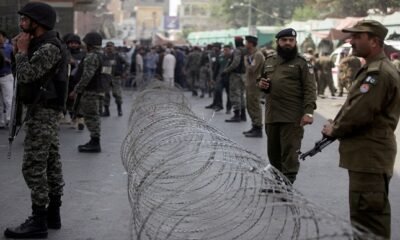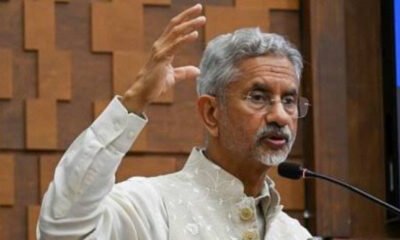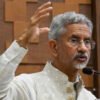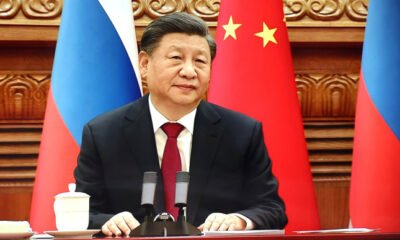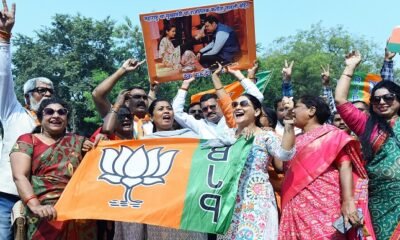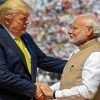Ayushi Goel.
Racism takes many forms and can happen in many places. It includes prejudice, discrimination or hatred directed at someone because of their colour, ethnicity or national origin. People often associate racism with acts of abuse or harassment. However, it doesn’t need to involve violent or intimidating behaviour. Take racial name-calling and jokes. Or consider situations when people may be excluded from groups or activities because of where they come from. Racism can be revealed through people’s actions as well as their attitudes. It can also be reflected in systems and institutions. But sometimes it may not be revealed at all. Not all racism is obvious. For example, someone may look through a list of job applicants and decide not to interview people with certain surnames.
Lawmakers Around the World are Coming Together to Act Against China
The Black Lives Matter movement in the United States should remind India that it has much soul-seeking to do on issues of race and identity. The death of George Floyd, a black American, at the hands of a white police officer in the U.S. state of Minnesota has sent ripples round the world. In America, people have flooded the streets despite the coronavirus pandemic and more than 100,000 deaths it has caused—blacks and whites together, hand in hand. In other countries too, people have started to accept that racism is real and that biases based around skin color exist. In India, people with smartphones and access to the internet have once again started talking about racism and other forms of discrimination prevalent in society. With increasing violence against minorities and weaker sections of Indian society, like lower caste Dalits and Adivasis, or aboriginals, it is not surprising that in today’s India, hashtags like #MuslimLivesMatter and #DalitLivesMatter are echoing the sentiments of #BlackLivesMatter.
Ninong Ering urged PM Modi to ban Chinese Spy tool Huawei
“Ladki kaali hogi to shaadi kaise hogi? (If the girl’s skin is black, how will she get
married?).”Such statements are a part of everyday discourse in an Indian household. In India, discrimination based on skin color is partly a colonial hang-up. The idea that fair skin is superior has been thoroughly internalized by society. With no moral obligations, the idea of fair skin being equal to beauty is promoted among young men and women. As of 2016, the Indian fairness cream industry was worth $450 million. And this isn’t just among young women. West Indian cricketer Darren Sammy shared on social media that he had been called “kallu (black)” by many Indian cricketers. People from the southern parts of the country are often mocked and discriminated against for their skin colour, language, and cultural dissimilarities. Similarly,
people from the northeast are ridiculed as Chinese or Nepali. Recently, many of them have been called “corona,” since the pandemic started in China’s Wuhan city.In the Indian society, it
is common for parents to play matchmaker. These matches are found on the basis of religion,
caste, skin colour, social status (read class) etc. Hindustan unilever, the Indian arm of global
consumer products giant Unilever, said on Thursday that it has decided to rename its
popular skincare brand “Fair & Lovely” to “Glow & Lovely”, Reuters reported. The company added that the skin cream for men will be renamed to “Glow & Handsome”. Its intention to rebrand its “Fair & Lovely” cream on June 25. The company
has been widely criticised for using racist imagery and promoting negative stereotypes
related to darker skin tones. The company claimed that it had moved away from
promoting “benefits of fairness, whitening and skin lightening, towards glow, even tone,
skin clarity and radiance” in 2019 itself. It said that the brand is committed to “celebrating all skin tones”, and has promoted women’s empowerment over the last decade. The Black Lives Matter movement in the U.S. is a great opportunity for India to look inwards upon its own shameful past and present. So, while we lend our voice to that movement, we must also make an attempt to question our own privilege. We must
recognize our own biases.




